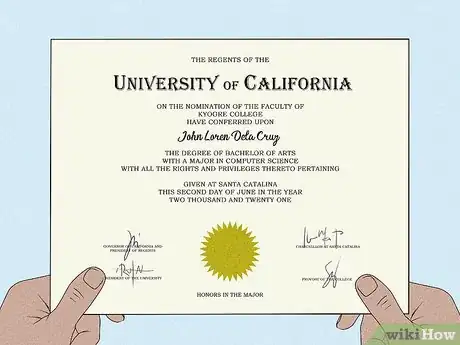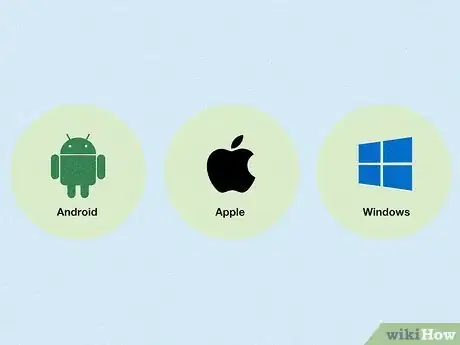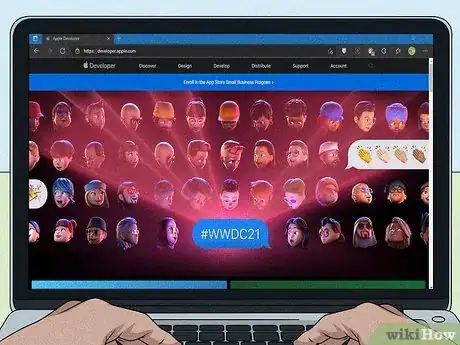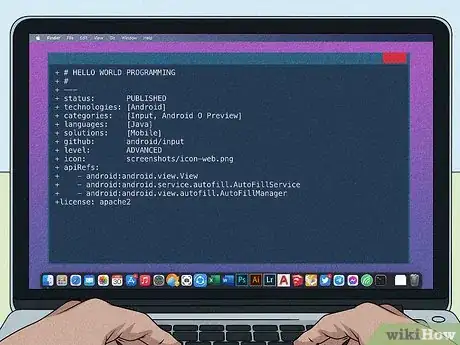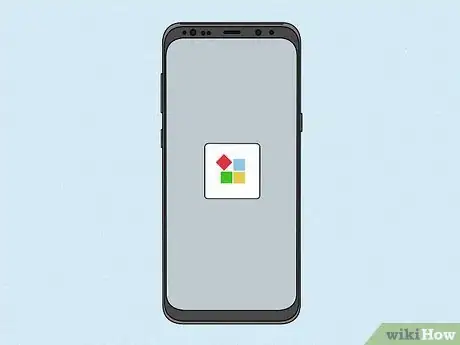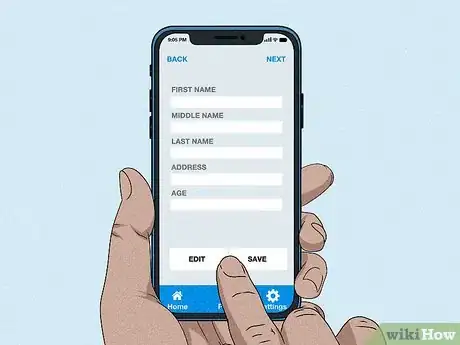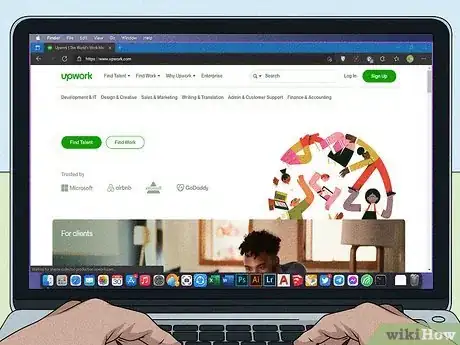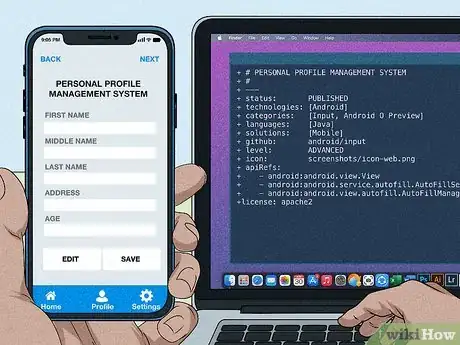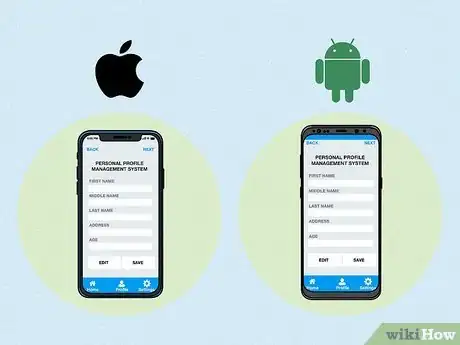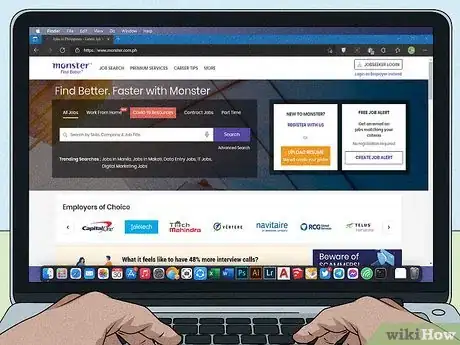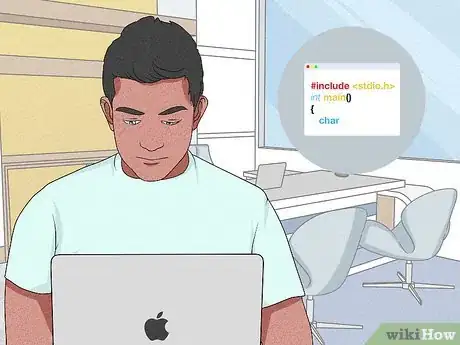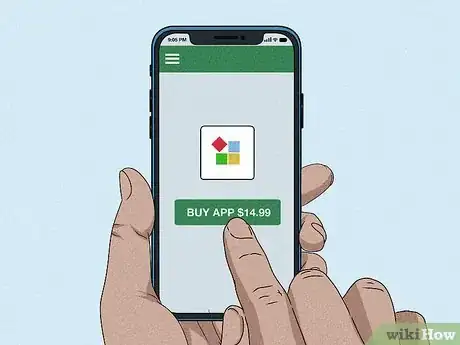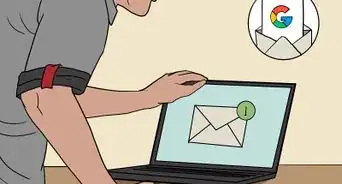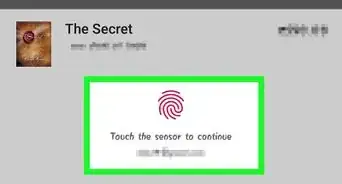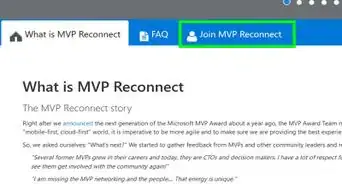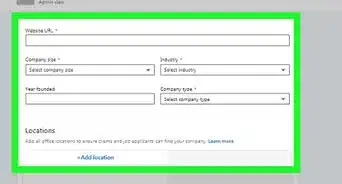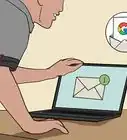This article was co-authored by wikiHow Staff. Our trained team of editors and researchers validate articles for accuracy and comprehensiveness. wikiHow's Content Management Team carefully monitors the work from our editorial staff to ensure that each article is backed by trusted research and meets our high quality standards.
There are 16 references cited in this article, which can be found at the bottom of the page.
wikiHow marks an article as reader-approved once it receives enough positive feedback. This article received 14 testimonials and 100% of readers who voted found it helpful, earning it our reader-approved status.
This article has been viewed 284,266 times.
Learn more...
As mobile phones have become as important as wallets and purses in everyday living, development in this area is moving fast. Getting started as a mobile application developer is easy if you are focused and know what you want to do. Here’s a quick guide showing how you can prove your credibility as a developer.
Steps
Gaining Experience and Education
-
1Try a computer science degree. While a degree in computer science is not strictly necessary, it can give you a foundation for the field. Plus, many companies will prefer you have at least a bachelor's degree in computer science if they are going to hire you on as a developer.[1]
- If you can, try specializing in mobile application coding while you are in school.
- Other degrees in relevant fields can also help, such as in software development. In fact, some schools offer degrees specifically in mobile app development.[2]
-
2Choose one of the major platforms. The major platforms are Android, Apple, Windows, Symbian, and RIM (Blackberry). You can learn to code for all of these platforms, but you probably need to choose one when you're first staring out.[3]
- Android is the dominate market, but Apple is not far behind. One of these two would be a good place to start.[4]
Advertisement -
3Use online development programs. For instance, Apple offers the iOS Dev Center. In the center, you can view tutorials and videos to help you begin learn coding. Android has a similar site, Android Developers Training.[5] However, you don't need to rely on just the official streams. Many websites across the web offer free classes and tutorials, though you can also find for-pay classes if you want to take it to the next level.
- One example of a place where you can learn coding is W3Schools, a well-known website for learning coding. It has a section on JQuery Mobile, which you can use to create mobile apps. This coding system is based in CSS3 and HTML5.[6]
- You can also try places that offer free online courses on a wide variety of subjects, such as edX or Coursera.
-
4Consider classes in marketing. You can take classes while you're getting a degree, take classes at a community college for cheaper, or even take classes at online sites such as Coursera to develop your marketing skills. If you're wanting to go out on your own as an app developer, you need to be able to market your game to the public; otherwise, the public will never even know it exists.[7]
-
5Take business classes. Like marketing skills, business skills are also essential for building successful apps on your own. Business classes can help you learn how to properly monetize your app, as well as how to create incentives for people to spend more.[8]
Practicing Your Skills
-
1Develop your own app. If you prefer to be hired on by a company, some great practice in the meantime is to develop your own app. It doesn't really matter what it is as long as it is useful or fun. Then, when you are searching for a job, you have something to prove your work.
- Having experience in the field, even if it's just developing your own app, can put you ahead of other candidates.[9]
-
2Come up with an idea for an app. Of course, a large number of apps are games. Games help people pass the time. However, any place you see a need could be a starting point for an app. So the first step is to determine where there's a need. Look at your own life and friends' lives, and consider what problems you or they have that an app could help solve. Once you've got an idea, start mapping out your app.
- For instance, apps such as DocScan and Scannable were developed because people needed a way to scan and store documents away from computers. The people who developed the app saw a need and filled it.
- Other apps, such as recipe apps, make it easier for people to find and use recipes because it's easier to use a recipe off a tablet or phone than off of a computer.
-
3Focus on usability. First and foremost, an app needs to be easy to use by the customer. Therefore, the main page should lead the person through the app with clear buttons, contrasting colors, and easy navigation.[10]
- One trick is to make sure you're using as much of the screen as you can. That doesn't mean you should cover every available inch with controls because you need negative space around the tools to make it readable. You have to balance using as much space as you can with making your buttons as large as you can. Partially, that means you need to keep your controls and buttons as simple as you can.[11]
- Make it easy to understand. That is, your user shouldn't need to reference other pages to figure out how to use your app. They should be able to figure it out just from the controls.[12]
-
4Hire the help you need. While you may have the coding skills, you may not have the design skills you need. If you need help in a particular area, consider hiring people on or collaborating with people who agree to take a portion of the profits as payment. Just be sure to give credit where credit is due whenever you are presenting the app.
- If you're not sure where to hire help, you can check freelancing sites such as UpWork, where you can hire people in different fields.
-
5Don't forget to test it for bugs. New apps always have bugs, so play-test your app. Have your friends test it, too, to see where the bugs are so that you can fix them. It also teaches you what works and what doesn't work in an app.[13]
- In other words, have your friends download the app on your phone. Let them play through it to see if they notice glitches.
- It's also important to get feedback on how the app and controls work. Ask your friends questions such as "Did you have trouble working the controls?" and "What problems do you see with the app?"
-
6Convert to other platforms. Once you learn how to build an app on one platform, it's time to convert it to other platforms. You are missing out on customers if you don't offer the app on platforms that all customers use.[14]
- With each platform, you must think about different problems. For instance, when moving from iOS to Android, you have to consider screen size difference. In iOS, the number of screen sizes is more limited, while Android has a much wider variety, and your app is going to look a little differently on each one.[15]
- Moreover, while choosing the platform for an application, you must also consider your target audience. However, a majority of users use an Android platform. Hence, it’s mandatory to understand your end-users and develop an app based on their demands and criteria.
- Another factor that you can consider is the promotion of an app. Marketing is an essential factor to let the world know about your product – application. Since your app is made for users, you should lure them to requirements and ease process.
- Another key point is to keep it simple. The more complicated it is, the harder it will be to convert and to have it look nice on different screens.[16]
-
7Apply for internships. Another way to gain experience, even while you're in school, is to apply for internships. You can often find internships through your school, as companies will approach schools to find people to be interns. You may even make some money to pay for school or get school credit for the internship.[17]
- Internships are great experience, but don't expect to be coding right away. You'll likely be doing at least some menial tasks while working at an internship.
- Many of the major tech companies will offer internships to local college students, so check their websites, as well.
Working in the Field
-
1Be ready to move. Certain areas are up-and-coming for this market. Silicon Valley in California is an obvious choice for this field. However, other, more unexpected areas, such as Washington, D.C., Alabama, Virginia, Utah, and Montana, have projected growth in the field of up to 45 percent.[18]
- While some companies may let you telecommute, most of the time, they are going to want you in the office. Many tech companies value group creativity, which is easier to encourage in an office setting.
-
2Apply for positions. If you plan to work for a tech company, start by applying for positions. You can find job listings on major job websites, such as Monster, Indeed, or Yahoo.[19] However, you can also search the websites of major mobile app companies to find jobs. Think about the apps you love, and look at the developer. Those places are where you want to apply because you already have a passion for what they do.
- What type of company you apply to depends on what you want. If you work at a startup, you're likely to have more hands-on time with the app and maybe more control. However, you don't know if a company is going to succeed or fail in it's early stages. With a more established company, you're more likely to be working on one small part of several apps, rather than being in control; on the other hand, you can be more confident that the company doesn't go under.
-
3Use your experience. If you have a degree and experience, use that to help you get a job. For instance, if you designed your own app, you now have a way to show how well you can code or design. If you interned at a company, you now have experience under your belt that other candidates may not have. Use whatever you've got to stand out from other candidates.[20]
- Be sure to highlight the experience you have in your cover letter. For instance, if you had an internship, you could say, "I would be a valuable asset to your company, as I already have experience coding at a similarly sized tech company. I interned at XYZ Tech for 6 months in 2014."
-
4Be ahead of the curve. When you work in the tech industry, you need to always know what's coming. One way to do that is to read tech magazines, as they often focus on what's ahead. As new coding platforms and technology comes on the market, it's your responsibility to learn it, so that you don't become obsolete.[21]
-
5Market and profitize your app. If you're going into business for yourself, that means you must be everything to your app. You must figure out the best way to profit off it, and then you must market your app across major social media outlets.
- Some companies offer the app for free, then charge to make the game faster or more enjoyable, such as offering packs of coins or stars. Customers may already find these types of incentives in the game, but the packs make the game move along more quickly for impatient players, especially if you pace the game so that only so much can be completed in a day without more of the in-game coinage.
- Find the right keywords. When naming your app and writing up a description, think about what your customers will be looking for. What word would you use to search for your app? You need to make that a part of your title, description, or keywords if possible.[22]
- Use in-app sharing. One way to encourage users to share is to have ways to help each other in the game, such as being able to give other users extra lives. If users can share on major social media platforms, such as Facebook, you'll have more luck with word-of-mouth.[23]
- Don't forget to pay. You can set up an app on Facebook or a mobile platform, but if you're not willing to pay for advertising, you're going to have a hard time building your customer base, especially if you're just relying on your friends.
Community Q&A
-
QuestionWhere can I learn coding to become a developer?
 Community AnswerYou can get a degree in something like Computer Science or Software Engineering. You also can learn by yourself using YouTube or Codecademy. Once you get a basic knowledge, start writing small apps, and as you write, you'll have different questions. Use the questions to learn and before you know it, you'll be a developer! The best advice is to be diligent! Nothing happens in a short period of time!
Community AnswerYou can get a degree in something like Computer Science or Software Engineering. You also can learn by yourself using YouTube or Codecademy. Once you get a basic knowledge, start writing small apps, and as you write, you'll have different questions. Use the questions to learn and before you know it, you'll be a developer! The best advice is to be diligent! Nothing happens in a short period of time! -
QuestionWhat are the upsides and downsides of being an application developer?
 Dan ShepherdCommunity AnswerA good developer will always have a well paying job. However, only a tiny fraction of those get to work on the cool stuff, like games. No matter what though, you, as a developer, get to create something out of nothing using only your brain and analytical skills. Not many jobs offer that level of instant gratification.
Dan ShepherdCommunity AnswerA good developer will always have a well paying job. However, only a tiny fraction of those get to work on the cool stuff, like games. No matter what though, you, as a developer, get to create something out of nothing using only your brain and analytical skills. Not many jobs offer that level of instant gratification. -
QuestionCan a flash animator be a game programmer or app developer?
 Community AnswerNo. It is not possible. You can go for c++ for gaming and play games, but Flash is used for making programs and animated shows so it cannot be used as an app developer also.
Community AnswerNo. It is not possible. You can go for c++ for gaming and play games, but Flash is used for making programs and animated shows so it cannot be used as an app developer also.
References
- ↑ http://www.tomsitpro.com/articles/become-mobile-app-developer,1-2219.html
- ↑ http://www.tomsitpro.com/articles/become-mobile-app-developer,1-2219.html
- ↑ http://www.itcareerfinder.com/it-careers/mobile-application-developer.html
- ↑ http://www.itcareerfinder.com/it-careers/mobile-application-developer.html
- ↑ http://www.codeconquest.com/what-is-coding/mobile-programming/
- ↑ http://www.w3schools.com/jquerymobile/default.asp
- ↑ http://www.forbes.com/sites/theyec/2014/07/18/five-killer-marketing-and-distribution-strategies-for-your-app/
- ↑ https://www.urbanpro.com/a/skills-needed-mobile-application-developer
- ↑ http://learningpath.org/articles/Becoming_a_Mobile_Applications_Developer_Job_Description_Salary_Info.html
- ↑ https://www.urbanpro.com/a/skills-needed-mobile-application-developer
- ↑ http://www.cmswire.com/cms/customer-experience/top-5-rules-for-creating-user-friendly-mobile-apps-015841.php
- ↑ http://www.cmswire.com/cms/customer-experience/top-5-rules-for-creating-user-friendly-mobile-apps-015841.php
- ↑ http://www.computersciencedegreehub.com/faq/job-app-developer/
- ↑ http://www.itcareerfinder.com/it-careers/mobile-application-developer.html
- ↑ http://thenextweb.com/apps/2012/11/18/from-ios-to-android/
- ↑ http://thenextweb.com/apps/2012/11/18/from-ios-to-android/
- ↑ http://www.computersciencedegreehub.com/faq/job-app-developer/
- ↑ http://www.schools.com/visuals/how-to-become-mobile-app-developer.html
- ↑ http://www.indeed.com/q-Mobile-Application-Developer-jobs.html
- ↑ http://www.computersciencedegreehub.com/faq/job-app-developer/
- ↑ http://www.cybercoders.com/insights/how-to-become-a-competitive-coveted-mobile-developer/
- ↑ http://www.forbes.com/sites/theyec/2014/07/18/five-killer-marketing-and-distribution-strategies-for-your-app/
- ↑ http://www.forbes.com/sites/theyec/2014/07/18/five-killer-marketing-and-distribution-strategies-for-your-app/
About This Article
To become a mobile application developer, you should first learn how to design apps, either with a computer science degree or using online development programs. You should also practice designing your own apps in your spare time, which will look great on your resume to future employers. Additionally, you can try applying for internships, which will give you real-world opportunities to hone your skills. When it comes to landing a job, you can apply to established or start-up tech companies and mobile app companies. Some jobs offer telecommuting, but many will also require moving to tech-orientated locations like Silicon Valley. For more tips, including how to come up with an idea for a new app, read on!
